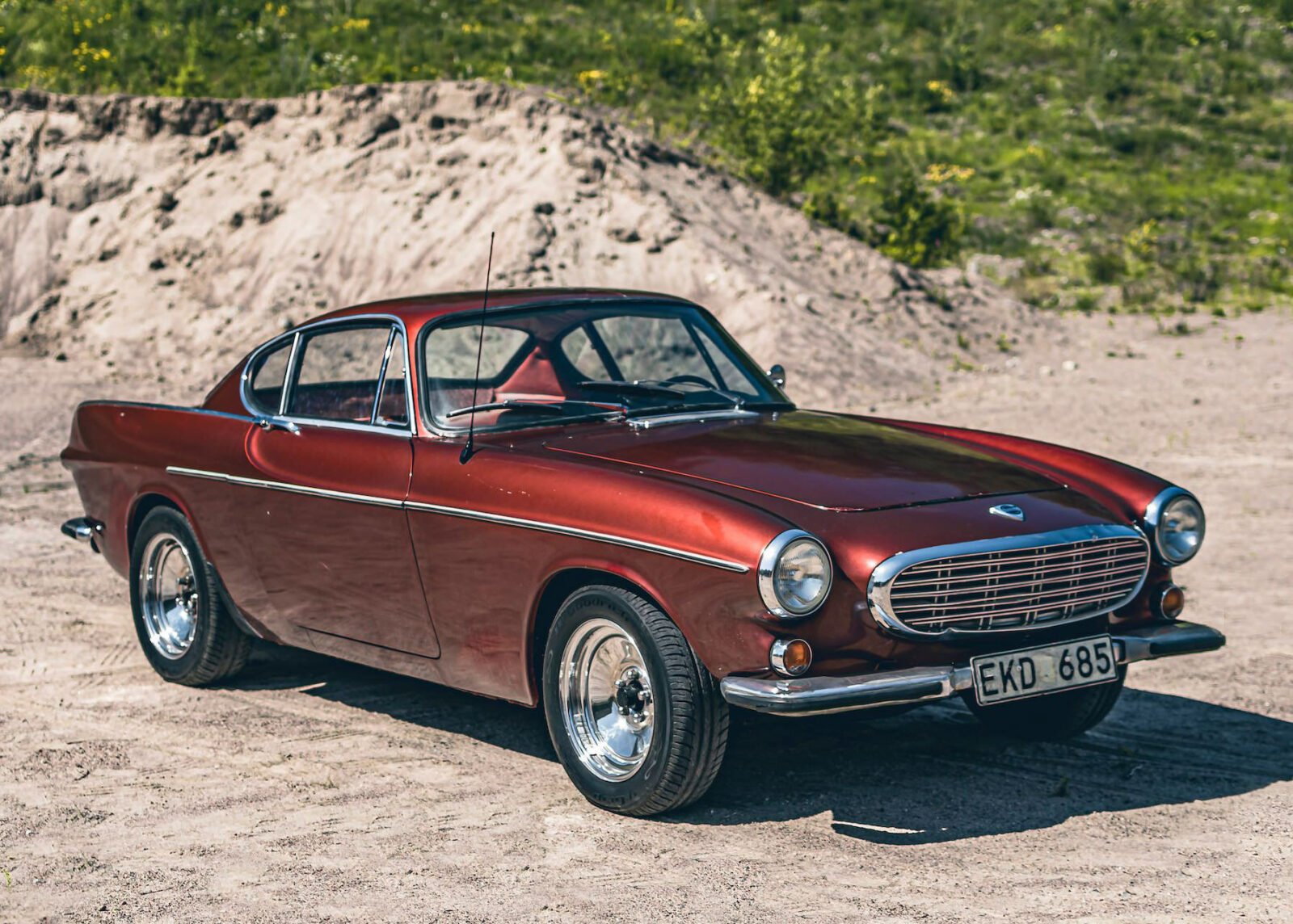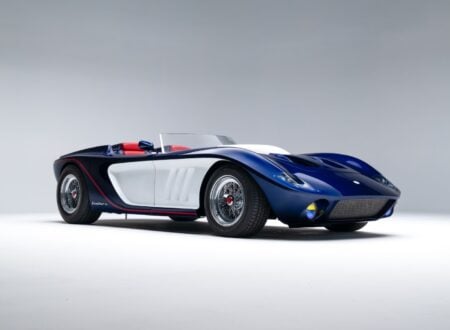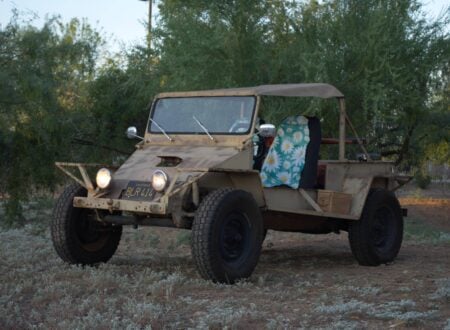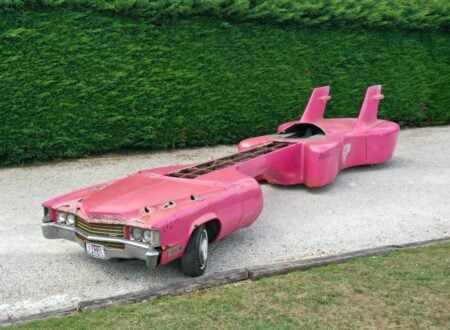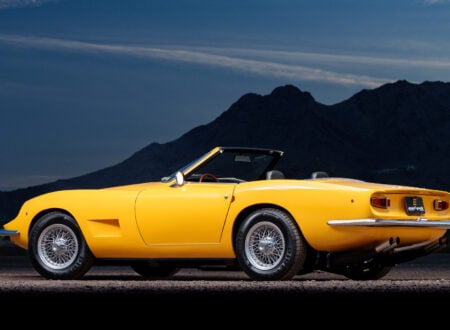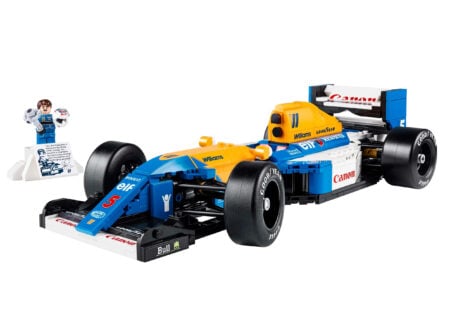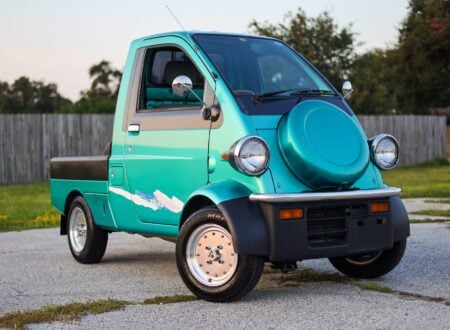The Volvo P1800 has been hailed by many as the most beautiful Swedish car of all time. The company switched over to making bricks-on-wheels a short while later and became so well known for boxy cars that many are shocked to learn that the P1800 is a Volvo and not a Ferrari or a Jaguar.
The P1800 S you see here is a car that’s been modified a little over stock, and it could now do with being saved as the paint and brightwork is all well past its best. It’s riding on a set of 15 inch chromed steel dish wheels, it’s powered by the original 1.8 litre Volvo inline-four, and it’s currently being offered for sale out of Stockholm, Sweden.
Fast Facts – The Volvo 1800S
- The Volvo P1800 was designed by a Swede, though this fact was kept secret for many years with the Scandinavian automaker preferring people to believe it had been designed by the Italians.
- The P1800 was released in 1961 and sold in various model iterations, including a shooting brake version, until 1973. The earlier cars were powered by a 1.8 liter B18 inline four, with later cars getting the slightly larger 2.0 liter B20 engine.
- It’s possible the P1800 would have remained an obscure Swedish sports car if it wasn’t for the fact that one was driven by Roger Moore in the popular 1960s British mystery/spy/thriller TV series “The Saint.” This resulted in the car becoming a cult classic overnight.
- The “S” in the P1800 S model name doesn’t stand for “Sport” as it would on most cars, in this case it stands for “Sweden,” to differentiate it from the earlier P1800 that had it’s body made in Britain.
Designed By A Swede In Italy
The project to develop the Volvo P1800 began in the late 1950s, the Swedish automaker wanted their own sports car to sell in the lucrative North American and European markets and their earlier attempt, the P1900, had failed miserably.
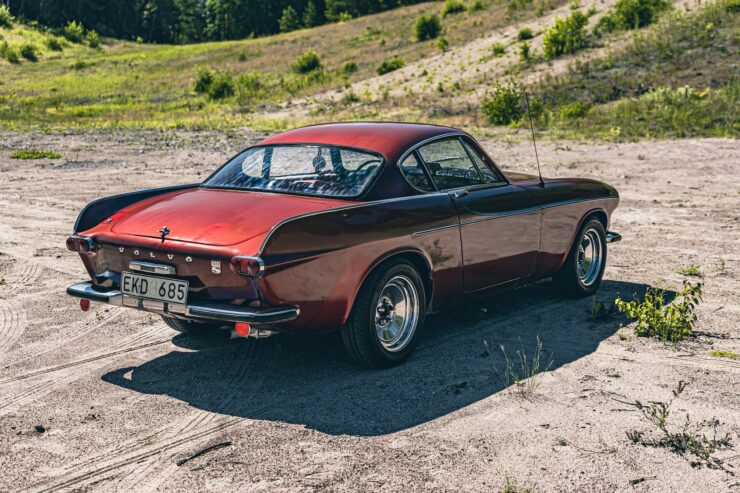

Helmer Petterson, the man behind the famous Volvo PV444/544, led the P1800 project. Although it was kept secret for many years after the car’s release, the design work was secretly done by his son, Pelle Petterson, who was working in Italy with designer Pietro Frua at the time.
To keep costs and development time to a minimum, the P1800 was constructed on the same chassis as the pre-existing Volvo Amazon, a famously tough production car that had been surprisingly successful in the world of rally. It provided a strong basis for the new sports car, and it ensured broad parts compatibility.
Finding A Coachbuilder
The first P1800 prototypes were assembled by Carrozzeria Frua in Italy in 1957. Initially, Karmann was hoping to be the coachbuilder and they could have put the P1800 into production as early as 1958, but this plan was halted when Volkswagen intervened. VW was Karmann’s largest customer by far, and the German company didn’t want the competition for its own Volkswagen Karmann Ghia.
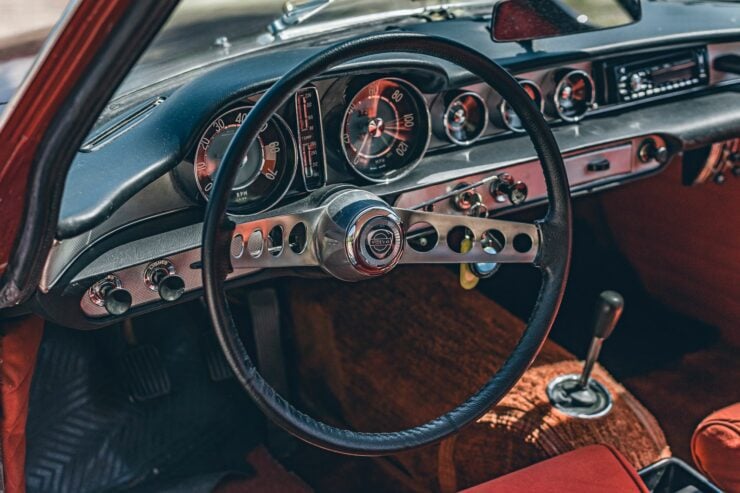

Several potential body manufacturers were evaluated before Volvo selected Jensen in West Bromwich, England. Pressed Steel in Scotland manufactured the steel bodies, shipping them to Jensen in England for final assembly.
Volvo P1800: Specifications
Equipped with a 1.8 liter Volvo B18 inline-four cylinder engine producing approximately 100 bhp, the early P1800 models were first delivered in 1961. By 1963, Volvo brought production in-house and released a revised model, the 1800S, with “S” standing for “Sweden” rather than “Sport.” Power gradually increased, reaching 115 bhp and then 118 bhp in 1969 when the B18 engine was replaced by the 2.0 liter B20.
The P1800 used the same steel unibody platform as the Volvo Amazon 120 series with a 10mm shorter wheelbase, almost the same overall length, and approximately 8cm more width. Depending on the generation the P1800 weighed between 1,130 to 1,175 kgs, or approximately 2,491–2,590 lbs.
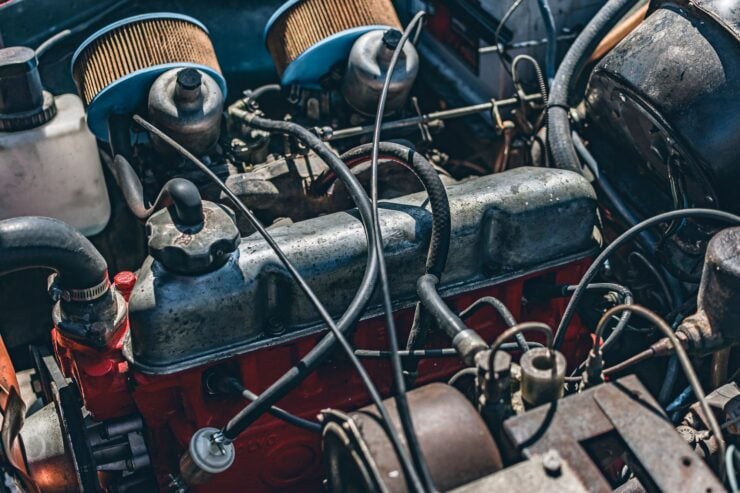

All examples of the P1800 rode on independent front suspension with rubber mounted control arms and ball joints, coil springs with telescopic shock absorbers. In the rear you would find a live axle with two longitudinal rubber-mounted support arms and two longitudinal rubber-mounted torque rods with transverse location of axle by track rod, and coil springs with telescopic shock absorbers.
The 1970s saw number of updates including a fuel-injected engine and a new camshaft profile, increasing the power to 130 bhp. In 1972 the final significant model, the Volvo 1800ES, was unveiled with eye-catching shooting brake (coupe station wagon) styling. This model was produced until 1973 and remains popular with collectors today.
The 1965 Volvo P1800 S Shown Here
The car you see here is a 1965 Volvo P1800 S that started out with Pearl White (code 79-1) paintwork from the factory, before being repainted in a burgundy metallic later in its life. The burgundy paint is now showing its age and is in rough shape, in reality the car needs rescuing – though the new owner could carry on driving it as it is if they so wish.
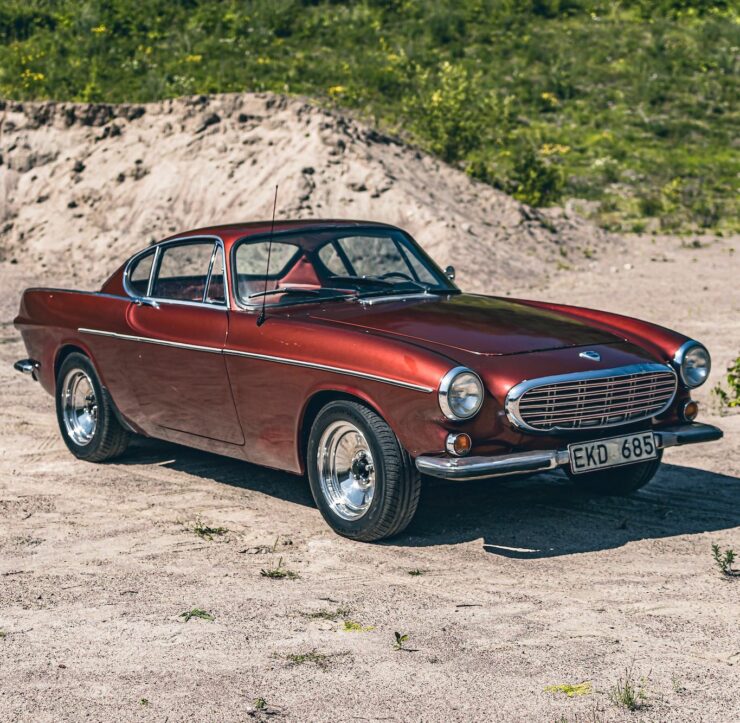

The car rides on set of 15 inch chromed steel dish wheels and the interior now shows red cloth upholstery, a contrasting silver and black dashboard, and a more modern ZAP radio / CD player with Bluetooth connectivity.
The brightwork is also showing signs of age and use, with the front grille surround needing either repair of replacement. The car is now being offered for sale out of Stockholm, Sweden on Collecting Cars and you can visit the listing here if you’d like to read more about it or register to bid.
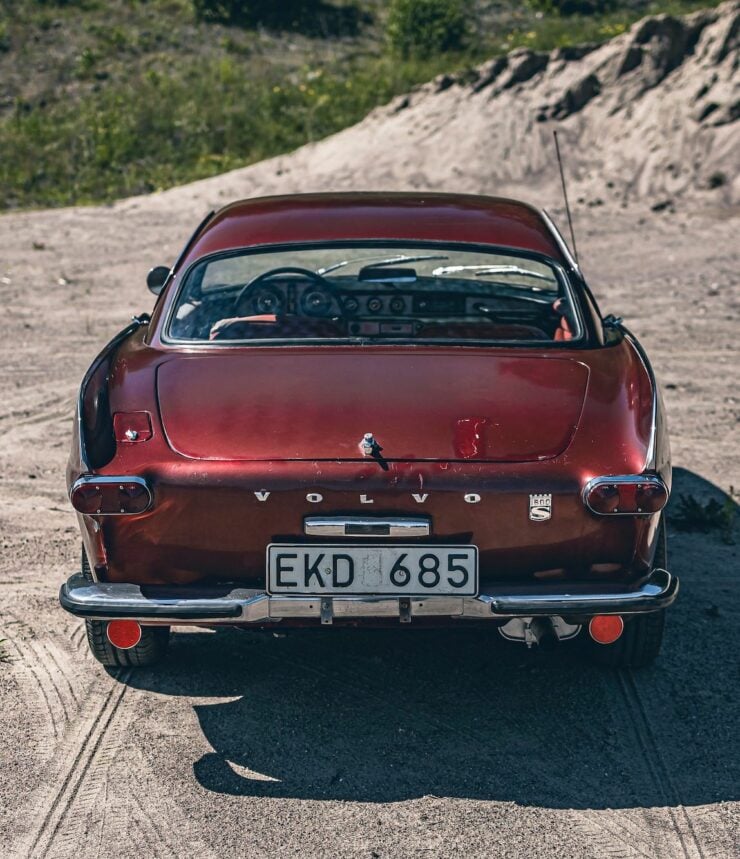
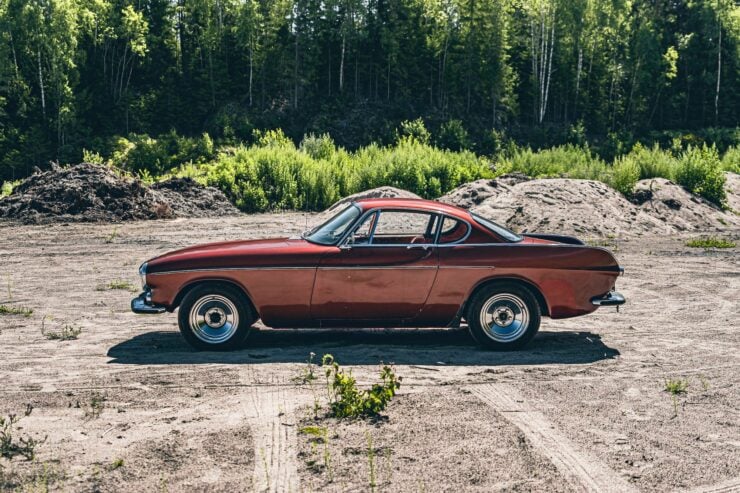
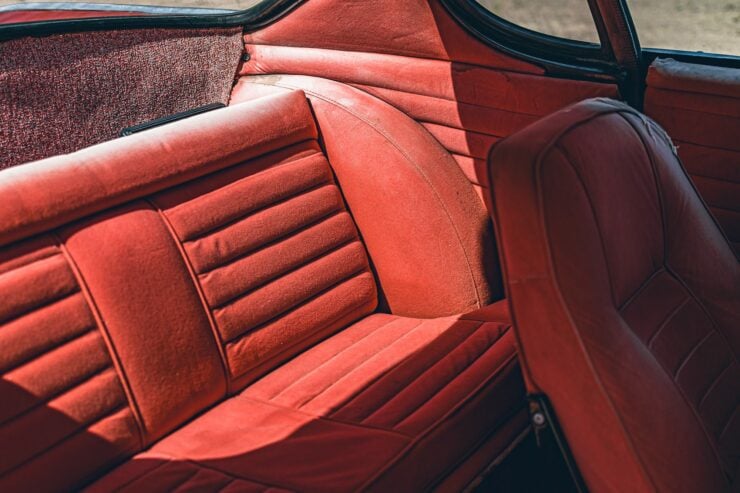
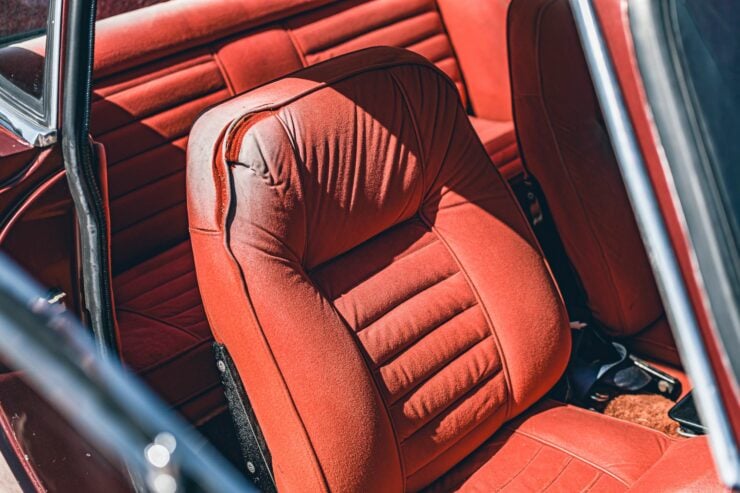
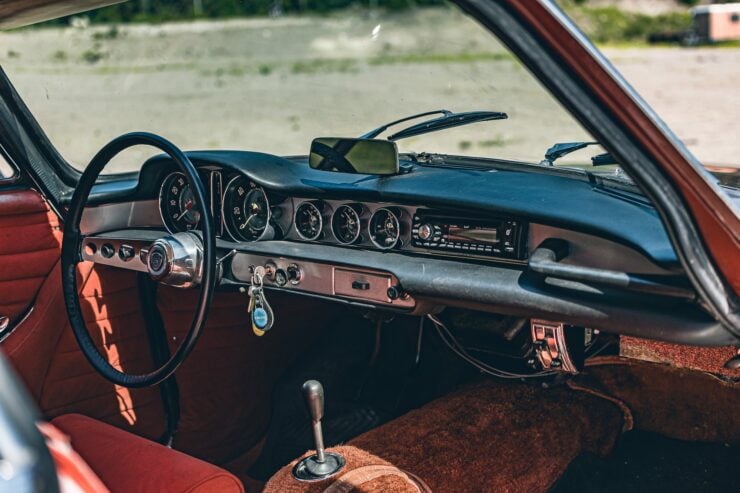
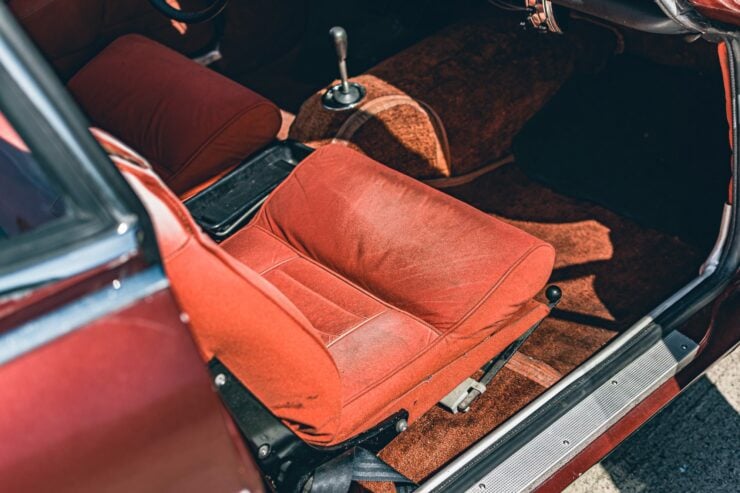
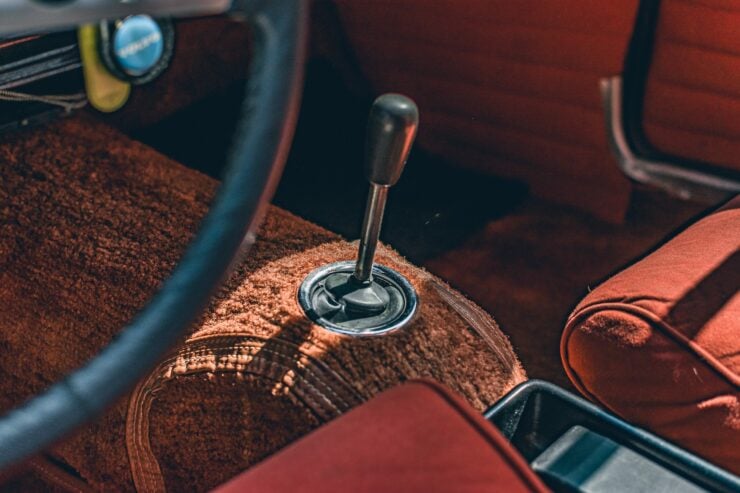
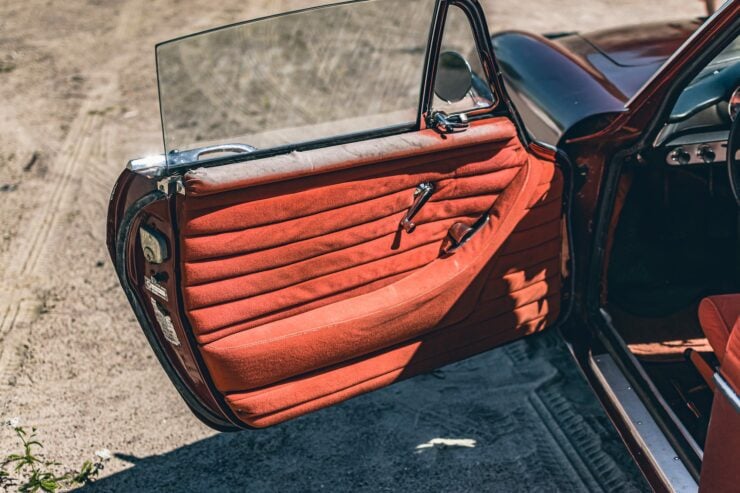
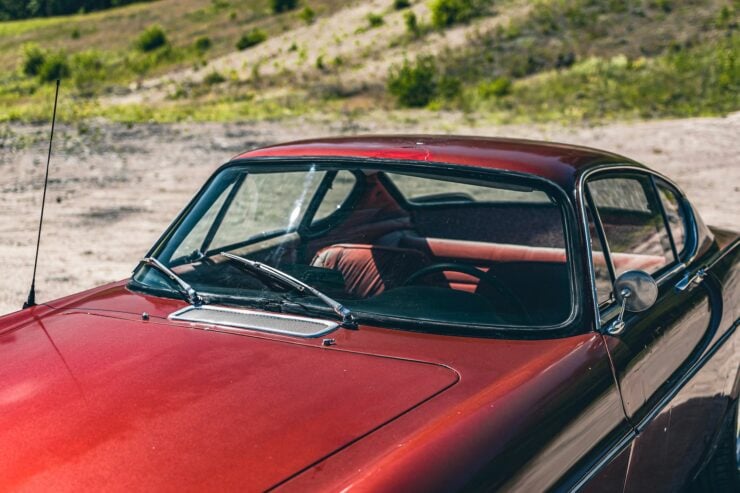
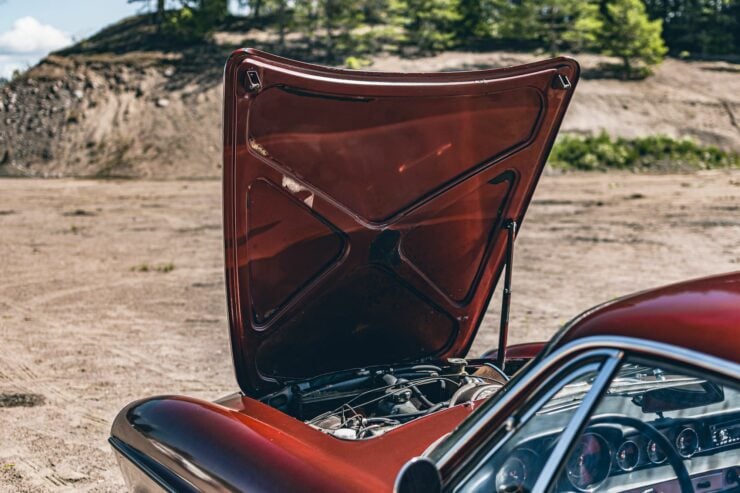
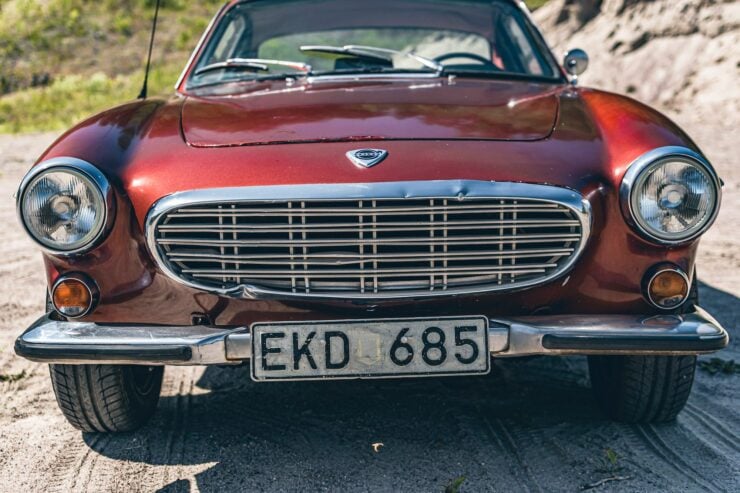
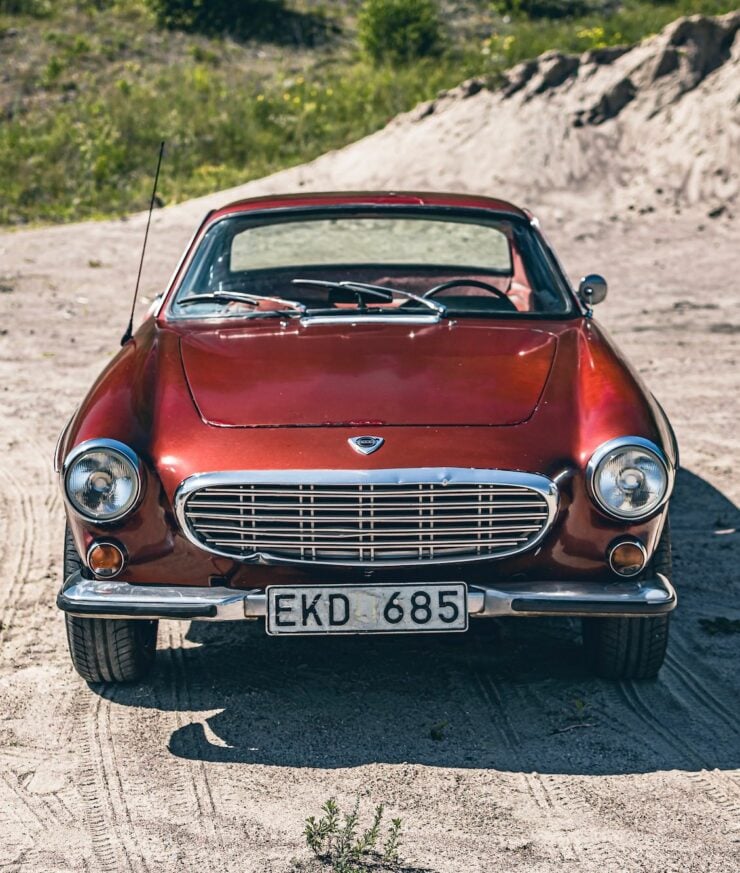
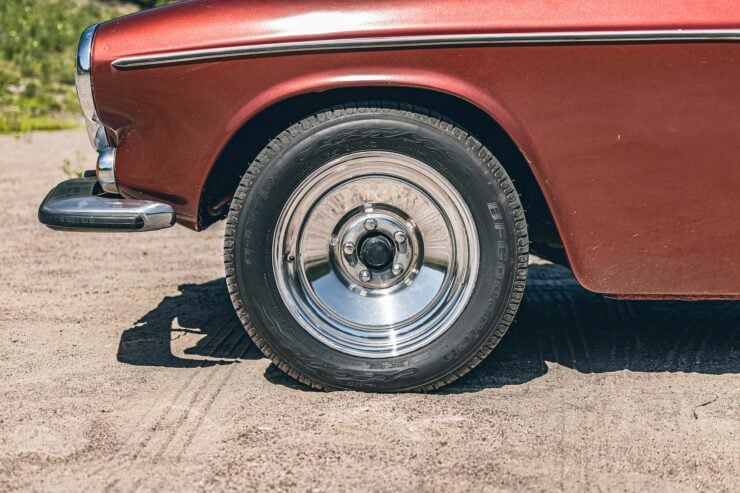
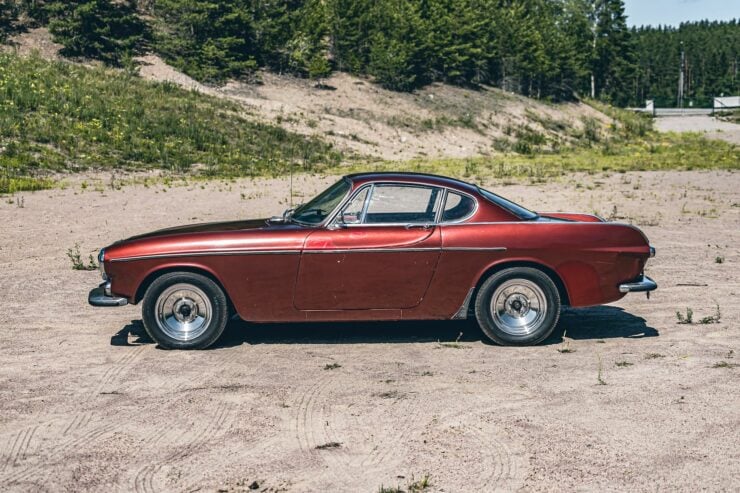
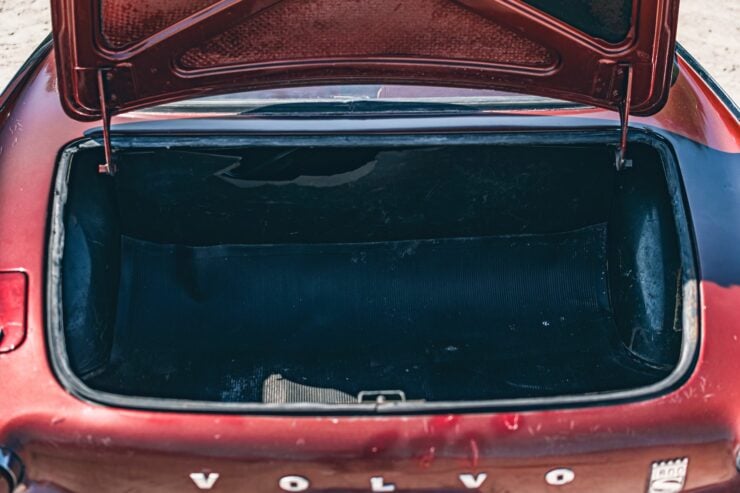
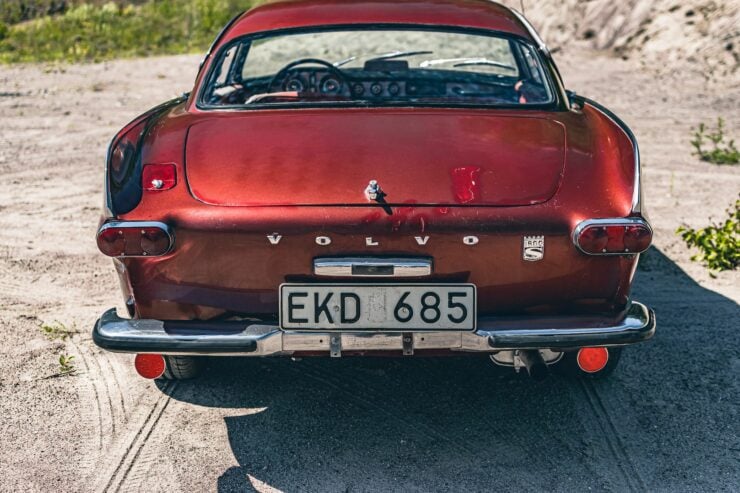
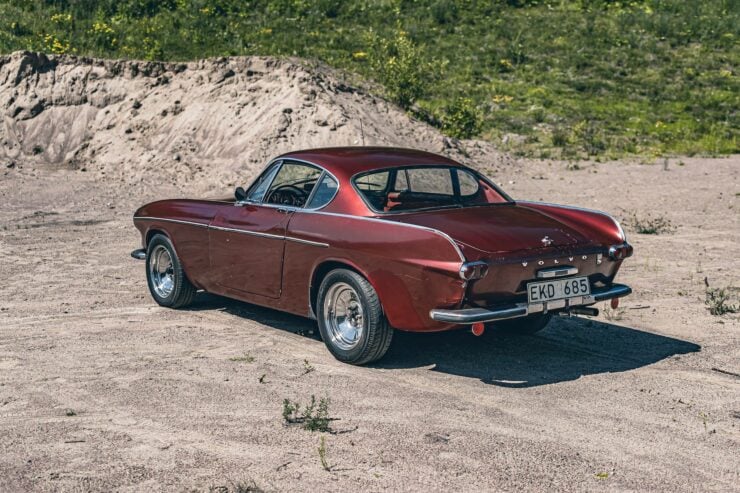
Images courtesy of Collecting Cars

